49+ Sample Activity Proposal
-
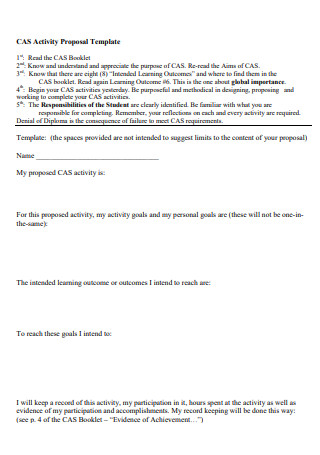
Activity Proposal Template
download now -
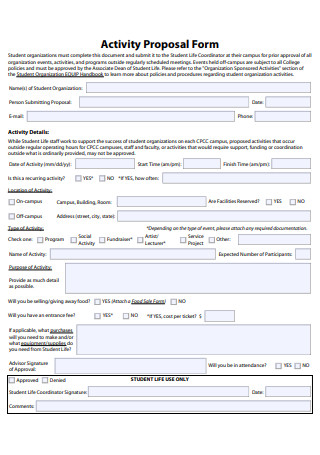
Activity Proposal Form
download now -
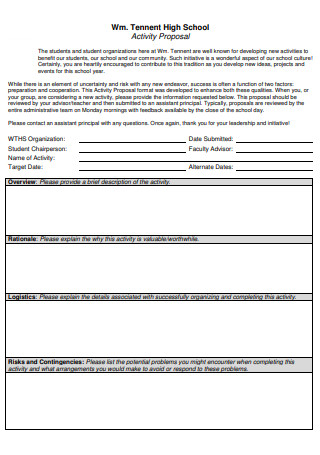
High School Activity Proposal
download now -
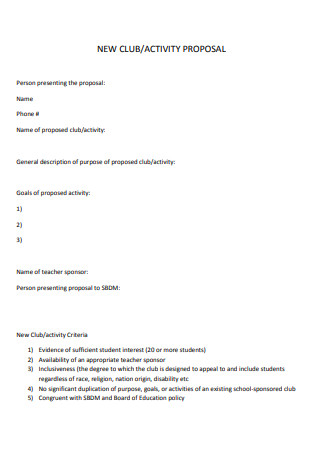
New Club Activity Proposal
download now -
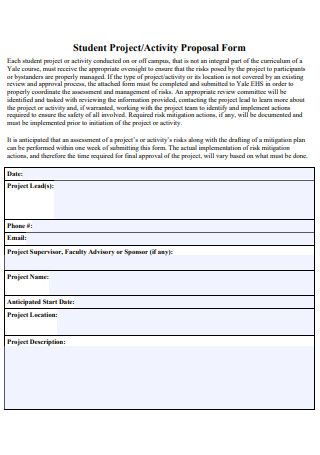
Student Project Activity Proposal Form
download now -
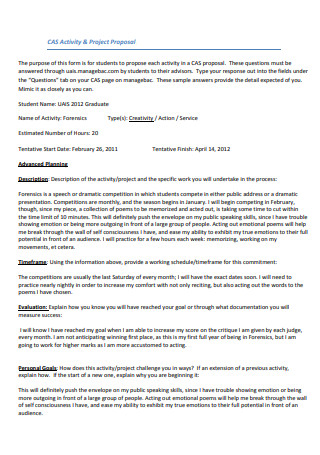
Activity and Project Proposal
download now -
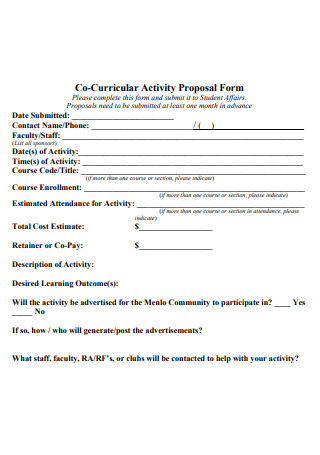
Co-Curricular Activity Proposal Form
download now -
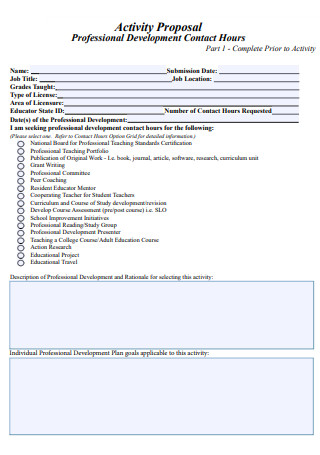
Professional Development Activity Proposal
download now -
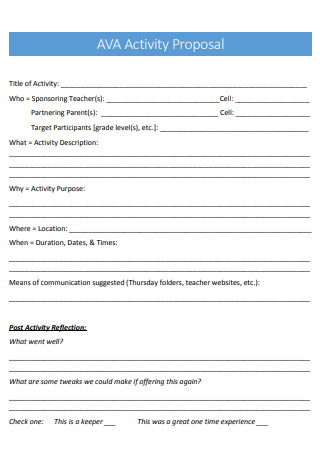
Simple Activity Proposal
download now -
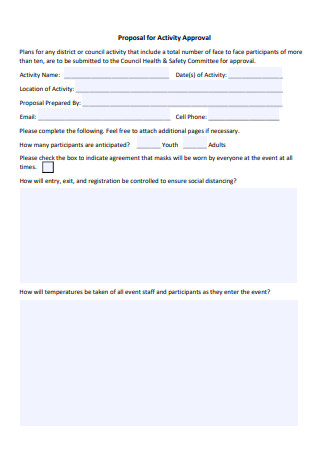
Activity Approval Proposal
download now -
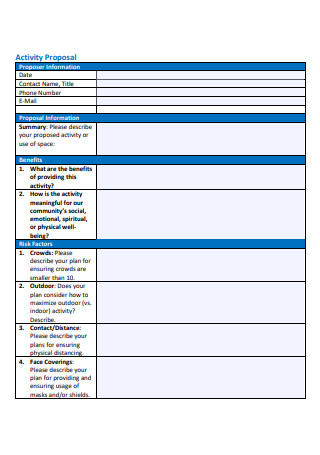
Formal Activity Proposal
download now -
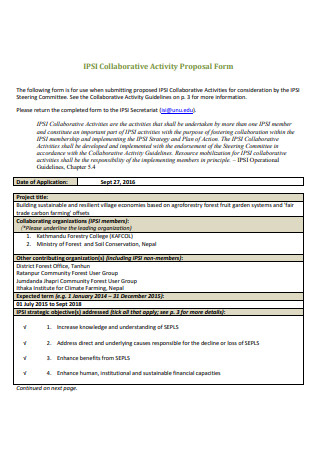
Collaborative Activity Proposal Form
download now -
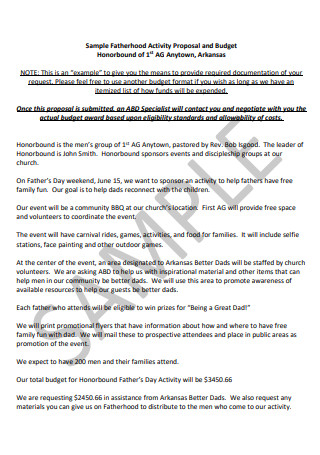
Sample Activity Proposal
download now -
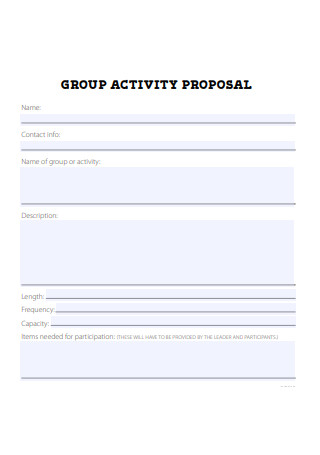
Group Activity Proposal
download now -
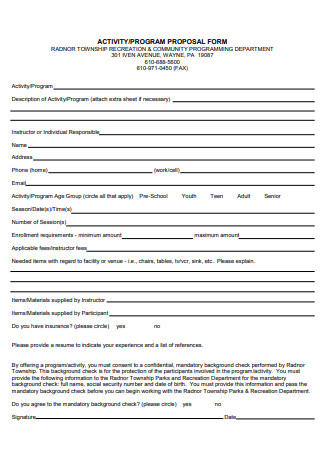
Activity Program Proposal Form
download now -
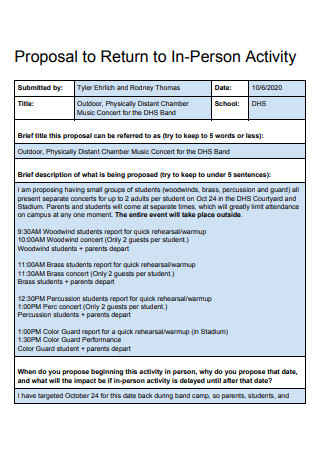
Return to in Person Activity Proposal
download now -
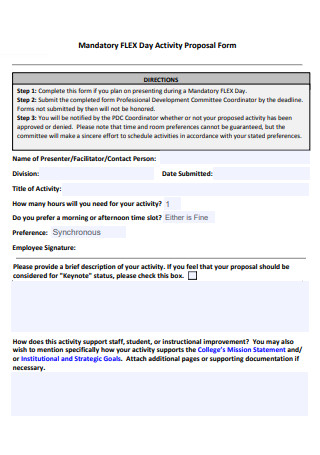
Day Activity Proposal Form
download now -
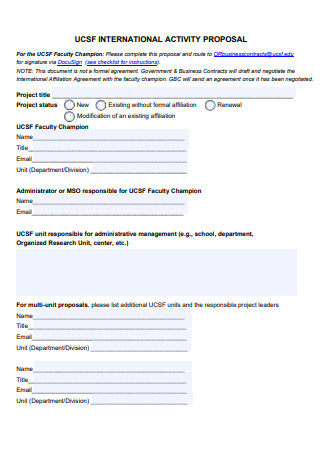
International Activity Proposal
download now -
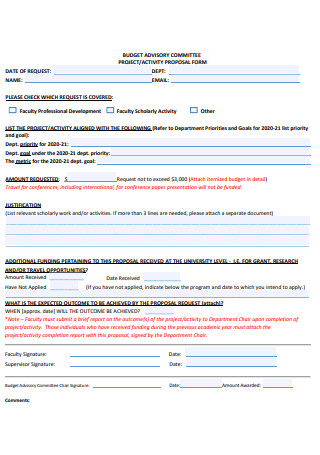
Project Activity Proposal Form
download now -
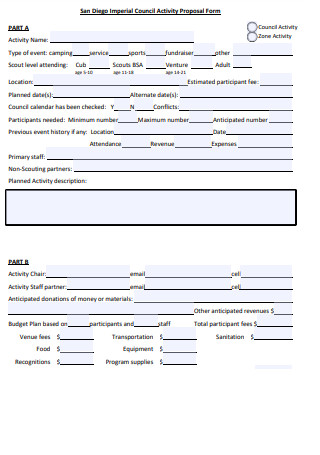
Council Activity Proposal Form
download now -
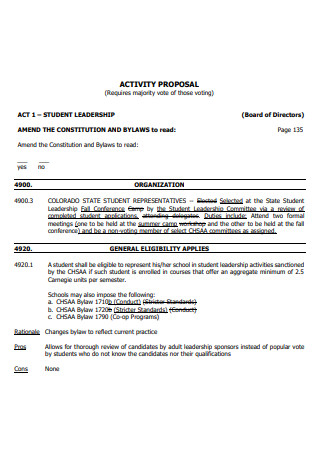
Activity Proposal in PDF
download now -
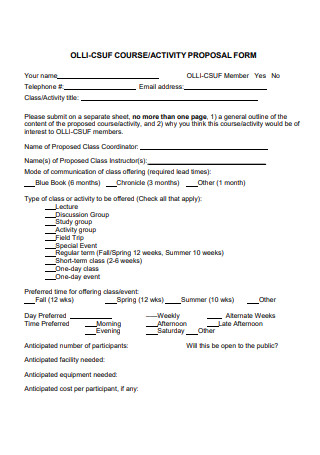
Course Activity Proposal Form
download now -
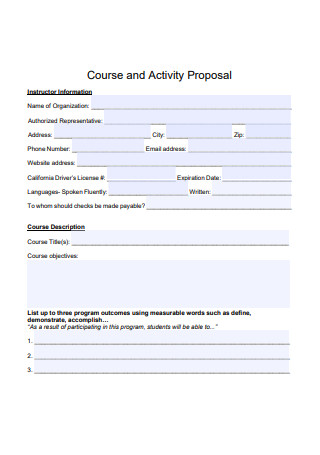
Course and Activity Proposal
download now -
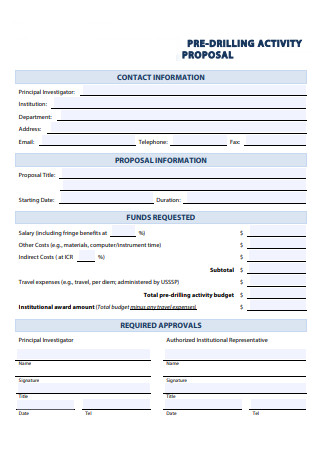
Pre-Drilling Activity Proposal
download now -
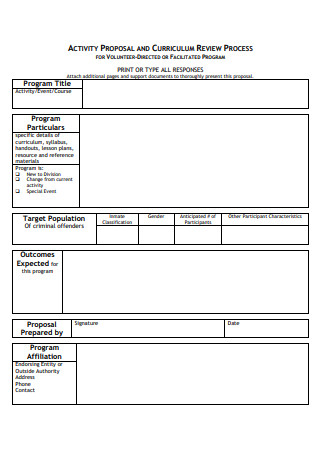
Activity Proposal and Curriculum Review
download now -
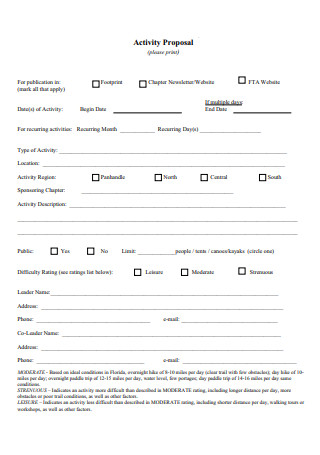
Activity Proposal Example
download now -
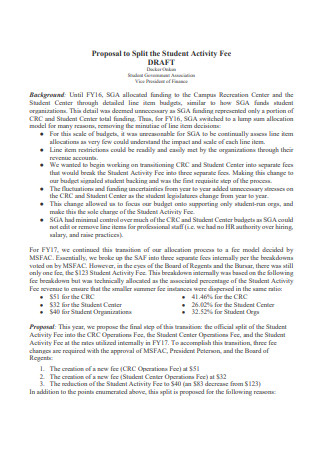
Student Activity Fee Proposal
download now -
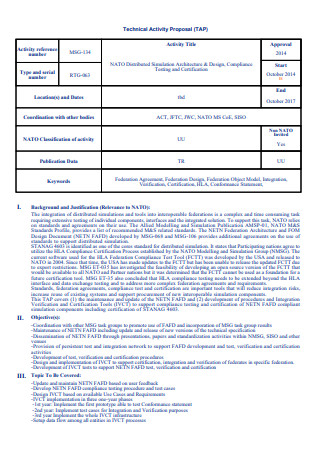
Technical Activity Proposal
download now -
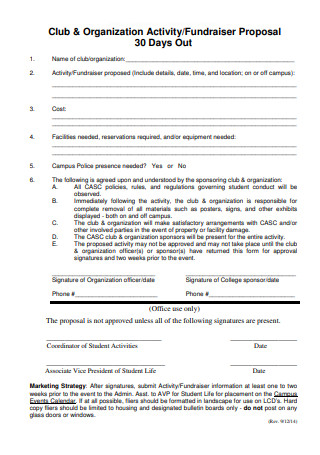
Club and Organization Activity Proposal
download now -
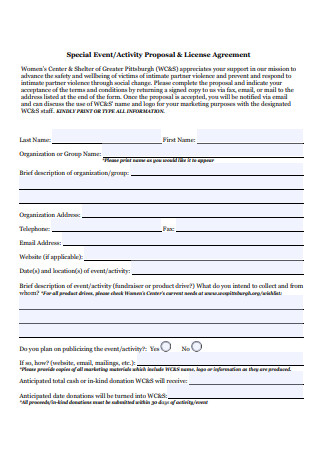
Event Activity Proposal
download now -
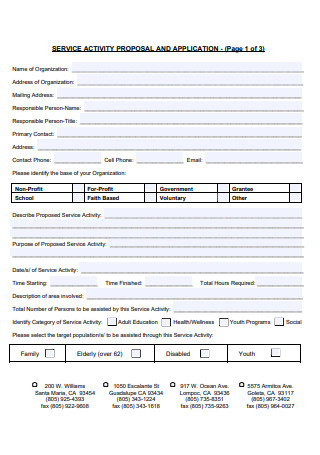
Service Activity Proposal and Application
download now -
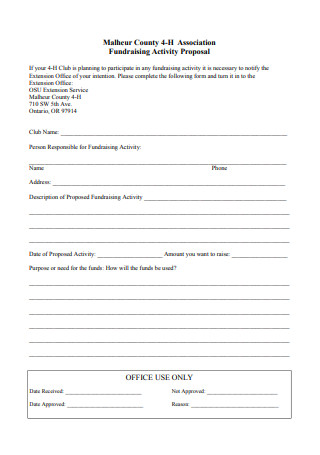
Fundraising Activity Proposal
download now -
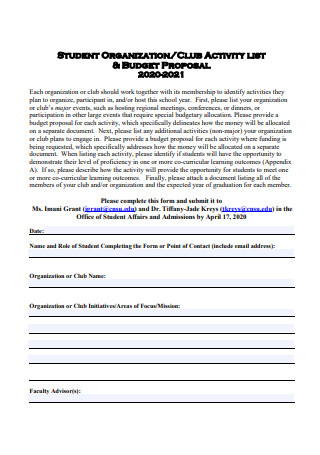
Club Activity List and Budget Proposal
download now -
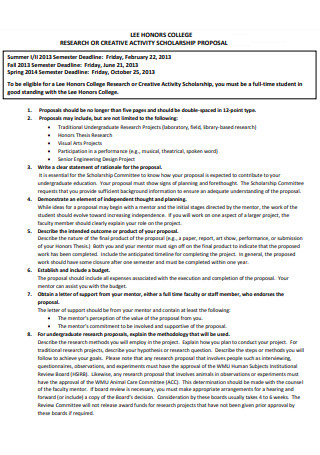
Activity Scholarship Proposal
download now -
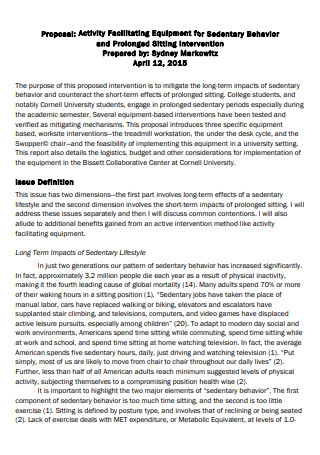
Activity Facilitating Equipment Proposal
download now -
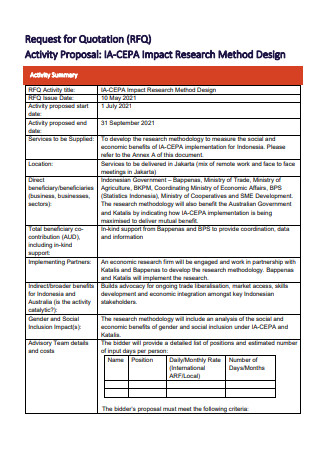
Request For Quotation Activity Proposal
download now -
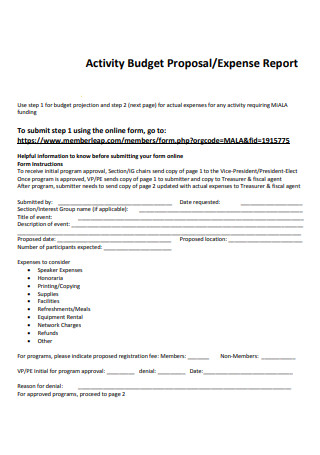
Activity Budget Proposal
download now -
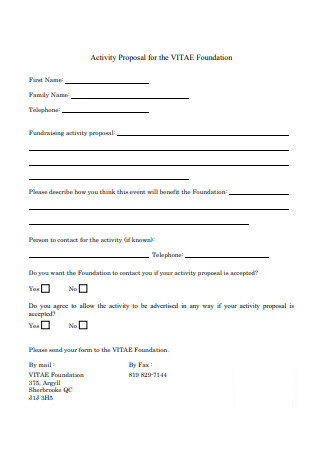
Foundation Activity Proposal
download now -
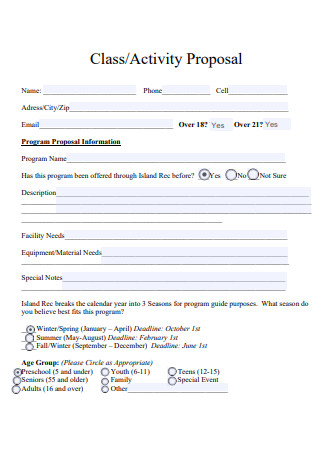
Class Activity Proposal
download now -
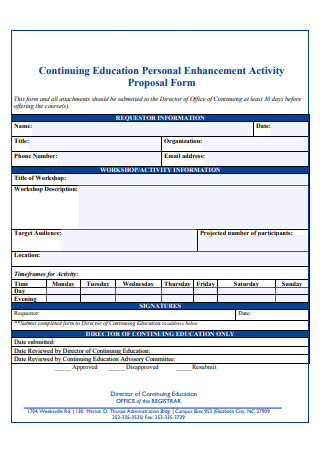
Education Personal Enhancement Activity Proposal Form
download now -
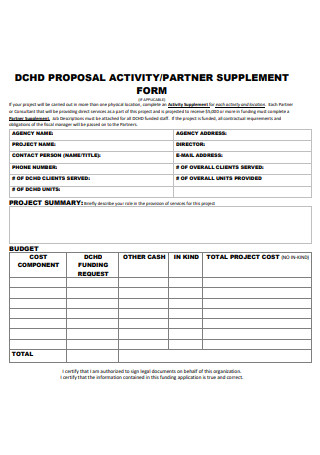
Partner Activity Proposal
download now -
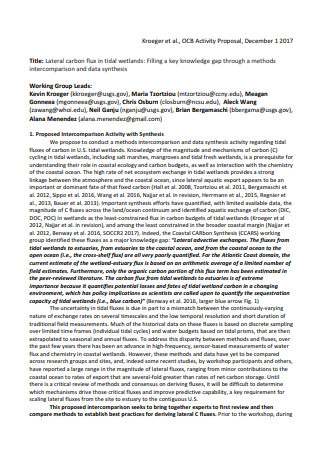
Printable Activity Proposal
download now -
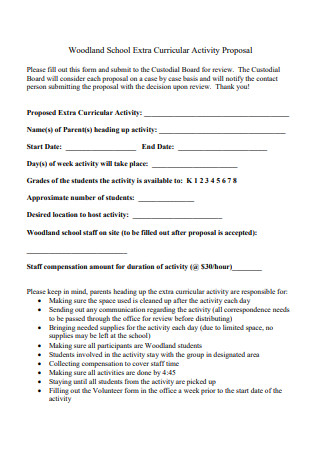
School Extra Curricular Activity Proposal
download now -
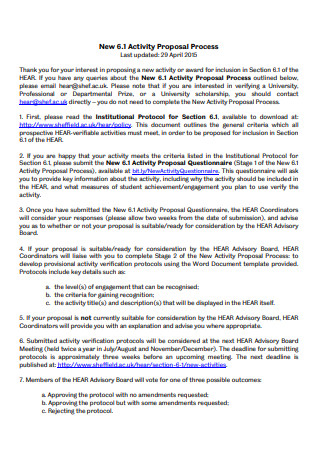
Activity Proposal Process
download now -
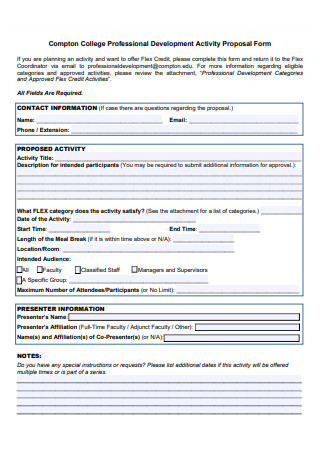
College Professional Development Activity Proposal Form
download now -
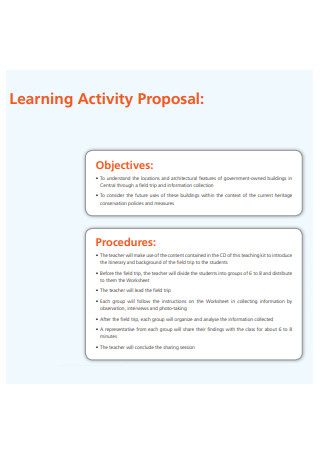
Learning Activity Proposal
download now -
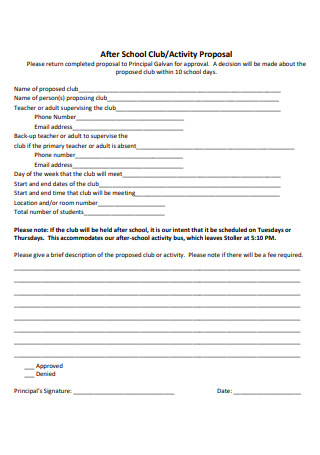
School Club Activity Proposal
download now -
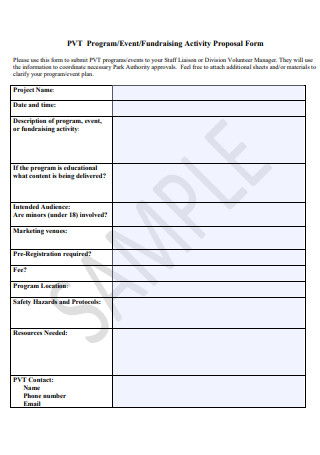
Program Activity Proposal Form
download now -
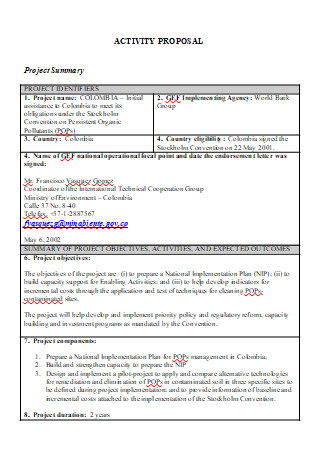
Activity Proposal in DOC
download now -
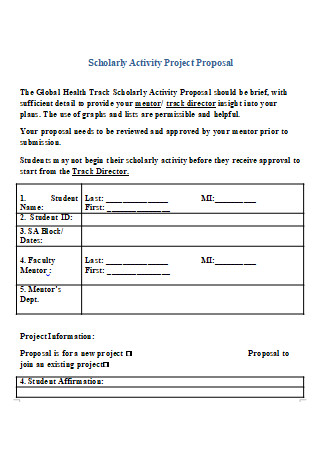
Scholarly Activity Project Proposal Template
download now
Activity Proposal | MS Word
49+ Sample Activity Proposal
What is an Activity Proposal
Outline of An Activity Proposal
Tips in Creating an Activity
S.M.A.R.T Objectives Checklist
FAQs
Why do we need to propose project activities?
How do you make an activity proposal?
What are Project Activities in a Project Proposal?
We provide 49+ Activity Proposal samples to help you in articulating your activities for the event and for the process to actualize it can officially begin!
What is an Activity Proposal
An Activity Proposal lists down the activities that are to happen for an event with intention of presenting it to an authority and appeal for their consideration or approval of your proposal. While an activity proposal can function similarly as an activity plan in the sense that it breaks down how your event will flow, the latter is more sure with the next step being the execution of the plans. On the other hand, an activity proposal is not necessarily final and is still open to revisions should co-members with higher positions or through which you have to go through, ask for it before your proposal is given the go signal.
However, an Activity Proposal does not merely enumerate the activities. It details what the activities are and what it can contribute to the realisation of your event. It also includes a proposed schedule for when the activities are to occur as well as maybe its duration and who will be responsible for it. It’s extensive in its coverage as if it’s exactly how the event will go and you’ll have to assume this is so not only so those in authority won’t require further changes but also to garner the approval for your proposal and proceed immediately to the necessary steps in actualizing your proposal.
Activity proposals do not necessarily have to be used for an event you wish to conduct. For clubs, it can be as simple as proposing activities for your club members to enjoy during their stay in the club. It can serve to encourage the members to extend their stay when they see the club’s active efforts to not be dormant and lose its purpose which, you have to be honest, is how most clubs tend to become. Nonetheless, it still has to be in line with the club’s mission and vision statements so that the members and potential recruits can see the club’s appeal and strengthen their interests that can translate to keeping the club going.
That being said, for your proposal to be approved and require less hassle and stress for you, it has to be constructed within the framework of your organization and the established objectives it wishes to achieve for the event.
Outline of An Activity Proposal
An Activity Proposal does not have a standard format. There will be countless variations to it depending on how your organization wants to visually organize it. But, every template does require certain components that must be included in your proposal. Take note that you have to see the activity proposal as the final output thus make sure that as much as possible, you provide all the necessary details and articulate them clearly and cohesively.
1. Basic Information
This includes who is managing the event as well as their basic contact information which primarily is composed of the contact number and their emails. The date and the time the event will start and begin can also be indicated as well as its location which can include video conferencing platforms in the case that social gatherings are still disabled. The event’s theme or it’s title can also be stated so as to present a brief idea of what the program is as a whole.
Recap:
- Name of Organization / Name of Event Organizer or Person In-charge of Proposal Submission
- Contact Number
- Contact Email
- Date of the Event
- Time the Event will Begin and End
- Location
- Name of the Event
- Theme of the Event
2. General Objectives
Briefly define the event’s objectives and the outcome it wishes to produce. Writing this can give you a better understanding of the event itself and will put certain things into perspective in the sense that things can be clearer and you are able to come up with related activities that are guaranteed to target the event’s objectives. A well-defined objective can narrow down what exactly your event wishes to achieve and this will reflect in your event’s activities but also vice-versa which is why it is important that you especially understand what exactly you are aiming for. As you continue to read the article, we discuss the S.M.A.R.T tool that has been reportedly used to aid in the setting of clear and effective objectives.
Recap: Qualities of the Objectives
- Well-defined
- Reinforces the event’s objectives
- Clarifies what the event is aiming for
3. Describe the Activities
Having defined your objectives, coming up with activities should hopefully be a breeze. Your activity proposal does not just simply list your activities. You must also have to define them but also in a way that must not only coincide with the objectives but must also lie within the organization’s vision and all of these should reflect in the proposal. The best type of activities that appeal to your target audience are the ones that are grounded in their social realities. They have to be concrete and practical because it’s through these activities that your objectives will be achieved which is you have to make sure that they have to be detailed and their relevance with the objectives must be clearly pointed out.
As this section is the heart of your proposal, they have to be clearly defined so that if someone were to mention even just your event’s activities, they are able to envision how the event will already flow or what the event could possibly aim for. Well-defined activities also give the impression of how seriously the event matters to you and how attentively you have treated it which should assure those in authority that the event can work as it is and without any more changes or additions.
Examples of general activities you can consider for your event:
- Webinars and Workshops
- Conferences and Panel Discussions
- Fundraising Campaigns
- Volunteering Programs
- Auctions-for-A-Cause
- Project Pitching
- Escape Room
Recap: Qualities of the Activities
- Clearly defined
- Must reflect the Organization’s Vision
- Relevant to the event’s Objectives
- Grounded in the realities of its target audience and environment
- Briefly explain how this will forward the Organization’s vision
4. Point Person
Each activity can be facilitated by different people. While this set-up is not necessarily compulsory nor does it guarantee the success of your event, structuring it this way does ensure the members’ participation. It also helps that core members are not as burdened in their task to spearhead the event as tasks are evenly distributed amongst the organization’s members. Point persons can also provide their inputs on how the activities can be managed better or how the activities can be enacted. In the end, this portion of the proposal is more so for the organization’s bond to strengthen, encourage team collaboration and to foster an environment that can comfortably ask for help as there will be people guaranteed to respond.
5. Evenly Distribute the Duration of the Activity
Your basic information mentioned the time your event will start and when it shall end and this is mostly dependent on how you allot the time for each activity to fold. This is why it’s important that you understand your activities because having done so, you can identify which activities need the most time and you can also assume a safe estimate of how long each of the activities can consume the event’s overall duration. Regardless if the event extends due to unforeseen inconvenience, it can still flow the way it was planned in the sense that one activity can move on from another.
6. Marketing Strategy
While processing your Activity Proposal, you must already have envisioned the ways through which you can disseminate your event and give it solid visibility. These B2B marketing strategies include promotional materials that with the help of the interactivity affordances of social media and technology in general, can effectively reach your target audience without you having to spend the same amount as you do in setting up physical posters that require printing funds and plastering them which needs physical labour from your team. What this will need though is a competent graphic designer that can encapsulate the event through images. Some promotional materials that you can choose from are: Publication materials, Video montage, Posters
7. Identify Resources and Budget
While this is mentioned last, it is important to note that your Activity Plan is created with your event’s capacity to support it in mind. Especially if you work for a non-governmental organization, resources may be limited so you formulate an event surrounding this fact. Present a budget worksheet for clearer visuals of what your event can potentially cost you. However, it is important that you can mount an event that you can afford. If not, you can proceed to seek sponsorships which you will also have to indicate in a separate section. This portion in your proposal mostly responds to questions like:
- Who can assist you in managing the event?
- How much the event shall cost?
- Will you need sound equipment?
- If you were to have speakers, how much should your honorarium be?
- Should you distribute certificates of participation to the participants?
- Will you need to rent a location for the event?
- Should the event need catering services?
- Does your event need freebies?
- Will your event need to resort to paid promotions?
Tips in Creating an Activity
Because your Activity Proposal has the pressure to reflect the Organization’s best interests, it has to be created that targets just this. We list down below some tips that will help you in writing an effective Activity Proposal.
1. Plan ahead.
An important thing you can apply in the process of writing your proposal is strategic planning it ahead. Making a proposal is no easy task which is why you would have to need a sufficient amount of time to plot it while making sure that you won’t have to revise a lot about it when it comes back to you because this could potentially prolong the stress and drain you in the process, be it physically or your creative juices. Sufficient attention must be allotted in the planning of an event and what better way to execute this than creating a timeline where you can focus on which aspects to prioritize? You can sneak this into your daily planners or your weekly schedule, assuming that you have enough time to do so. While it does not necessarily do anything in the actual proposal, having enough time does wonders as you are able to create an early outline, make initial plans and draft your proposal until it is perfected.
2. Define your purpose.
Purpose should not be confused with the objective as the latter is more specific and anchored to what your event aims and your event must aim to be a reflection of your organization as a whole. The event’s purpose would then be grounded to the vision of your organization and is likely where your objectives should be inspired from. This can provide a clearer direction in where you want your proposal to head.
3. Work with a team.
This is another tip that does not really do anything in the actual writing of the proposal but more so in the process. You cannot formulate an Activity Proposal alone especially when you work in an organization. While it is perfectly fine to challenge yourself, planning should be a group activity or one that encourages cooperation and participation from other team members.
4. Anticipate technical difficulties.
When planning, it is also encouraged that you take into consideration unforeseen events that might be detrimental to the flow of the activity. This way, you can provide alternatives in the case where something goes wrong in the actual event. Or, you can plan your activities that by themselves can still continue to work even while unexpected changes may occur.
S.M.A.R.T Objectives Checklist
As mentioned, to have a better grasp of your objectives you can follow the S.M.A.R.T acronym that was first developed by George Doran, Arthur Miller and James Cunningham in 1981 which according to The Mind Tools, is a guide that will tell you if your objectives are in fact, smart. This way, you can set your objectives effectively and articulate them in the best way possible. According to its proponents, objectives are SMART if they are:
FAQs
Why do we need to propose project activities?
It is not enough to have a project in mind. It always comes handy to write this down to ground your project better and make sure that you can come up with the ideal objectives and the corresponding activities to achieve them. Most projects also go through a process and that begins with a proposal. Preparing a proposal also gives you a professional feel as it gives the people you want to present your project with the impression that you have come prepared and you have a deep understanding of your project.
How do you make an activity proposal?
The outline of an activity proposal is simple especially if you understand what you want to do. By downloading any of our activity proposal templates, you can simply just fill them out or follow its format for your activity proposal. Just be sure that you provide the basic information which includes the Organization behind the event and its contact details, the objectives are clearly defined, the activities are apt and necessary to achieving the event’s objective, and you have identified the resources and the budget plan that your activities will cost you.
What are Project Activities in a Project Proposal?
Project activities are all the tasks or the work that must be done for your project to achieve its intended goals. Some of the activities could be an Educational Discussion, Focus Group Discussions or Surveys.
The most successful event contract start with an effective Activity Proposal. With at least even one of our Activity Samples, you can start creating your own while keeping in mind the tips we have mentioned, the first tip being planning ahead. Rather than feeling lax that a deadline is still far ahead, take advantage of that gap. You just might not have enough.
